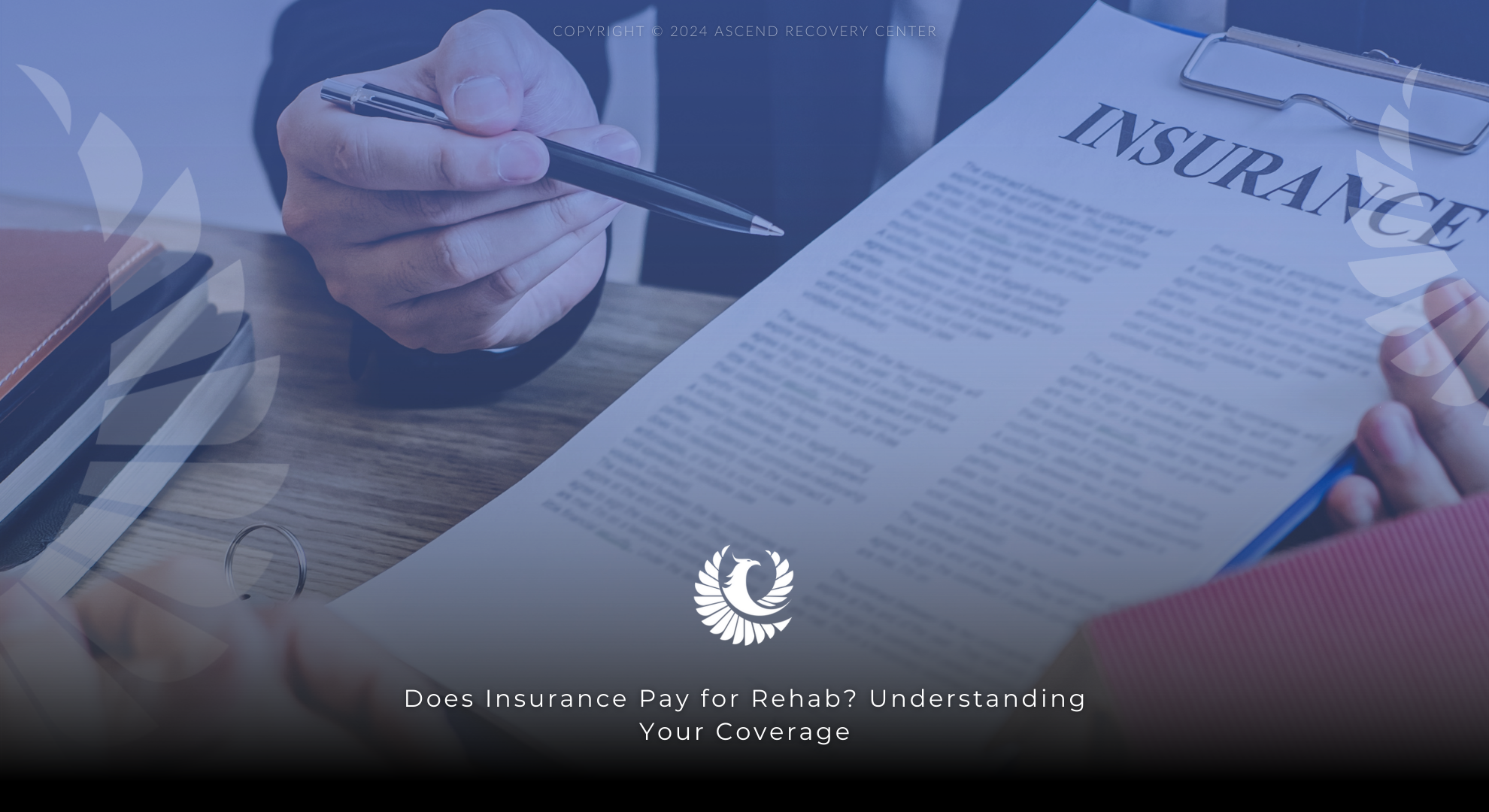Addiction is a common yet devastating issue that millions of Americans face each day. According to the Substance Abuse and Mental Health Services Administration (SAMHSA), 48.7 million people struggled with addiction in 2022.
When you have a substance use disorder, the best way to recover is to attend a professional addiction treatment program. That said, drug and alcohol rehab centers can be expensive. Paying out of pocket might not be an option for most people.
Thankfully, insurance companies are required to cover some form of substance abuse treatment. Health insurance plans recognize addiction treatment as an essential health benefit that insurers must provide. But how do you use insurance to pay for rehab?
When you are using your insurance to pay for rehab, there are several things to consider. For example, you need to meet a deductible, understand your co-pays, and find an in-network treatment facility. You’ll also want to find out if you have an HMO or PPO plan, as these plans offer different kinds of financial support.
Does My Insurance Cover Addiction Treatment?
Insurance companies are required to cover addiction treatment under the Affordable Care Act (ACA) and the Mental Health Parity and Addiction Equity Act (MHPAEA).
First, the Affordable Care Act includes substance use disorders as one of the 10 essential health care benefits that insurance companies must cover. This ensures that you will receive some form of coverage for addiction treatment.
Additionally, the MHPAEA is a federal law that ensures insurance companies cannot place unfair limitations on their clients due to substance abuse. In other words, it prevents discrimination while establishing that private insurance must cover addiction treatment.
Addiction Treatment Services Covered by Insurance
Insurance companies will cover a wide range of addiction treatment services. Usually, it depends on what your physician deems as medically necessary for your recovery.
The types of treatment options covered by insurance include:
- Medical detox
- Inpatient treatment or residential rehab programs
- Dual-diagnosis treatment centers
- Partial hospitalization programs (PHPs)
- Intensive outpatient programs (IOPs)
- Outpatient programs (OPs)
No matter what kind of addiction treatment you need, you can find a program that accepts your insurance. Of course, there are some things you will have to keep in mind. For example, most insurance companies have a list of in-network treatment providers, which means you will have to attend one of those to receive coverage.
Understanding Your Coverage
The cost of treatment you are responsible for will vary depending on tons of different factors. First, every insurance plan has a deductible. You will have to meet your deductible before your insurance plan will cover any form of treatment.
Next, most insurance plans have co-pays for things like doctor’s visits, therapy appointments, and more. If you are seeing a doctor or therapist during your treatment program you might have co-pays that you are responsible for.
Lastly, the type of insurance you have might affect the amount and type of coverage you are given. HMO plans tend to have lower monthly premiums and expect you to pay less out-of-pocket. However, they require treatment facilities to be in-network for you to receive coverage.
On the other hand, PPO plans tend to have higher monthly premiums. The trade-off is that you have the flexibility to choose any treatment provider you want, as being in-network is not required.
How to Get Insurance if You Don’t Have It
There are a few different ways to go about getting insurance. Your easiest option would be to get insurance through your employer. Unless you work at a very small company, your employer should be offering health care benefits.
If getting insurance through your job is not an option, you could look for private insurance. Individual health plans are available to you through the ACA marketplace or directly from an insurance company.
Lastly, you could apply for Medicare or Medicaid if you meet the requirements. Medicare is for individuals who have a disability or are 65 and older. Medicaid is intended for low-income individuals, pregnant women, children, and people with disabilities.
How to Pay for Rehab Without Insurance
If you do not have insurance, there are still a few options for paying for rehab. First, you could choose to pay out of pocket. However, rehab can be extremely expensive, especially if you need medical detox or inpatient treatment.
If you cannot afford to pay out of pocket, there are a few ways to go about paying for rehab. You could:
- Ask family and friends for donations
- Dip into your savings
- Consider crowdsourcing on a platform like GoFundMe
- Choose a rehab center that offers payment plans like sliding scale fees
- Find government-funded rehab centers that do not charge for services
- Look into scholarships for addiction treatment
Some rehab centers offer sliding-scale payment plans. This means they will only charge you what you can afford based on your income. Additionally, there are treatment centers that offer scholarships to people who cannot afford treatment to ensure everyone gets the care they need.
Verify Your Coverage Now
If you or a loved one require addiction treatment, you’ve come to the right place. Ascend Recovery Center is here to help you with a combination of compassionate and evidence-based care. We offer a wide variety of treatment options, from medical detox to outpatient treatment to ensure our clients get the type of care they need.
Additionally, we have locations in Florida, New Mexico, and North Carolina, allowing people to choose what part of the country they’d like to recover in. Whether you are local to one of our facilities or traveling for rehab, we have got your back.
If you are concerned about whether your insurance covers rehab, our admissions counselors can help you verify your coverage today. Contact us to receive more information about our treatment center and find out if we accept your insurance.








